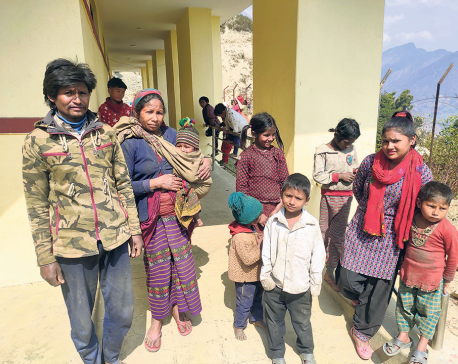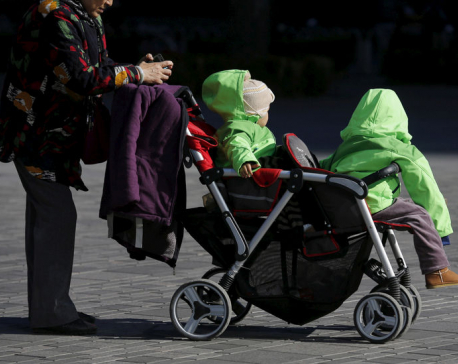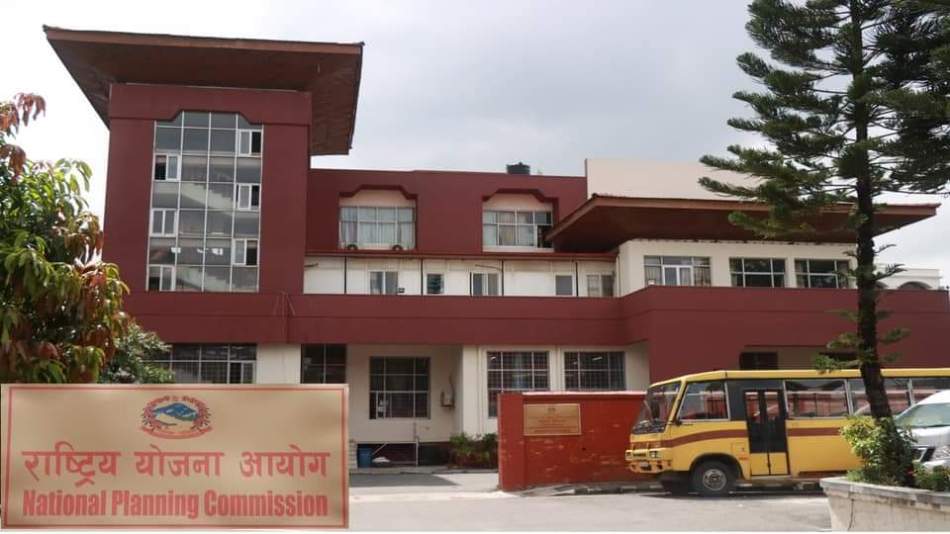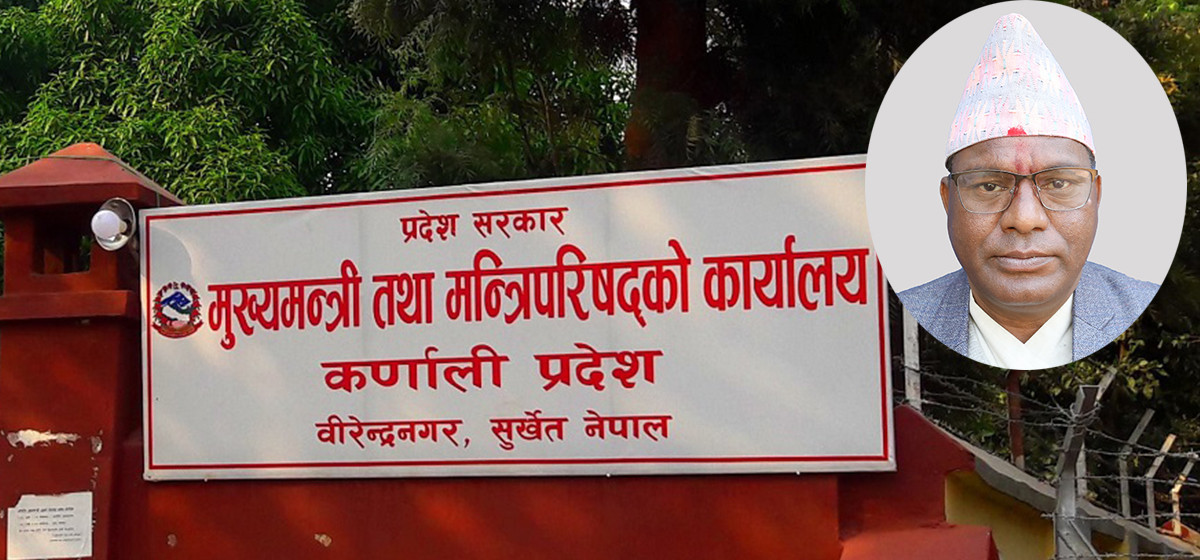
OR
World Braille Day
Braille booklets on reproductive health
Published On: January 3, 2020 09:31 AM NPT By: Republica | @RepublicaNepal
KATHMANDU, Jan 3: Dilu Khadka, a local of Dailekh, is blind by birth. She has passed the intermediate level but she had little knowledge about reproductive health until she gave birth to her two sons.
She was not aware about family planning methods, health care, her reproductive rights and ways to raise children.
Neither did her family members share their knowledge about issues related to sex, family planning and reproductive health with her nor did she get a chance to read about these issues in her textbooks. Textbooks don’t provide adequate knowledge about these contents.
Considered a taboo, many Nepalis still feel bad to talk about sex and reproductive health.
More importantly, persons with disability are neglected in every front. The reason is they are considered second-class citizens and nobody - neither the teachers nor family members - share their knowledge about reproductive health with them. And they keep being deprived of even the basic knowledge related to their own health.
“Due to our socio-economic structures, I really didn’t get enough knowledge about my reproductive health for my betterment,” said Dilu adding, “So, you cannot think about the state of other illiterate blind people and their sufferings.”
Blind girls often face rape, as they cannot resist. Even if they are married happily they continue to be deprived of education related to reproduction health. And they are forced to give unwanted births risking their lives.
To address the reproductive health knowledge gap seen among the visually-impaired, Nepal Association of the Blind (NAB) has developed informative materials in Braille for them to make them aware about these issues.
Based on the content provided by the Health Ministry and IPAS Nepal, NAB itself developed the booklets on reproductive health for blind people. The booklets includes information on reproductive health related informal content such as menstruation, nutrition, temporary family planning methods, birth control, and possible health complications after delivery, among others.
As part of informing visually-impaired people about their reproductive health and family planning methods, NAB has developed 2,000 copies of the Braille booklets. The Braille copies of this type have been developed for the first time and are now being transported to the districts—where most visually-impaired students are studying.
Till date, half the total braille copies have been transported to Saptari, Dailekh, Nawalparasi, Parsa, Makawanpur districts. The remaining copies will be sent to the other districts after having consultation with the district committees of NAB.
The 2011 census puts the size of blind population at 94,600. But experts say the number of blind people is much higher than what the census estimated. Of the total visually-impaired population, 1,500 students are now studying in various government schools of the country, according to NAB.
“This Braille is nothing for illiterate visually impaired people. But this of course benefits the blind people familiar with Braille,” said Niru Magar, who developed a braille booklet on reproductive health, adding such type of practical content has never been produced before.
Dr Lhamo Sherpa, a senior health researcher at IPAS Nepal, said the reproductive health content was developed for blind people to leave no one alone in ensuring health services as per the commitment made by the government in course of achieving SDGs on health services.
“Among the persons with disabilities, deaf people communicate using signs and often work as cattle herders. But no one cares about visually-impaired people and they are confined to their houses without getting any information related to reproductive health,” said Dr Lhamo, adding, “That’s why we have developed braille booklets for the blind and it would be great if the same is expanded across the country.”
You May Like This

Mansari, 44, has 13 children
ROLPA, Feb 26: Mansari Pariyar does not know the formal names of her children. She calls them by their pet... Read More...

Maternal mortality remains high in Nepal: UNFPA report
KATHMANDU, April 17: Nepal has made a significant progress in maternal health and family planning since 1994, according to a... Read More...

China does away with family planning offices
BEIJING, Sept 11: China’s health commission is getting rid of three offices that were previously dedicated to family planning, it... Read More...






Just In
- National Development Council meeting on Thursday to finalize 16th Plan
- Qatar Emir meets PM Dahal, bilateral agreement and MoUs signed between Nepal and Qatar
- Employee involved in distribution of fake license transferred to CIAA!
- Youth found dead in a hotel in Janakpur
- CM Kandel to expand cabinet in Karnali province, Pariyar from Maoist Center to become minister without portfolio
- Storm likely to occur in Terai, weather to remain clear in remaining regions
- Prez Paudel solicits Qatar’s investment in Nepal’s water resources, agriculture and tourism sectors
- Fire destroys 700 hectares forest area in Myagdi



_20240423174443.jpg)









Leave A Comment